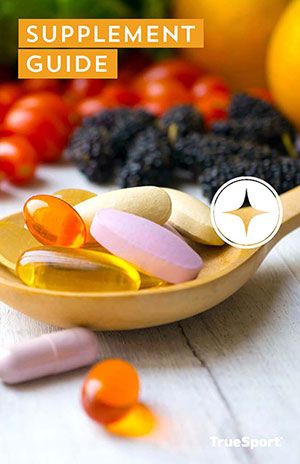SUPPLEMENT GUIDE
It’s easy to assume that if a product is on a store shelf, then it must be safe. But dietary supplements are regulated in a post-market manner, meaning the Food and Drug Administration (FDA) does not evaluate the contents or effects of supplements before they are sold. A harmful or illegal dietary supplement can stay on store shelves for a long time, sometimes even years, before the FDA can remove them.
Because of this, it’s important to be an informed consumer and understand the risks before deciding to use any dietary supplement.
do athletes need supplements?
Many athletes believe they need dietary supplements to perform at their best, but this trust in supplements is undeserved. While it’s true that some supplements can be helpful in some circumstances, people regularly overestimate their benefits and safety.
Many use them without understanding the supplement industry or talking to a dietitian, and they instead rely on advertisements and labeling. However, people can’t trust what many supplements claim to contain or deliver because of ineffective regulation of the supplement industry.
The Supplement Guide is designed to help you decide if the potential benefits of dietary supplements outweigh those risks, and if so, how you can better choose a low-risk product.




